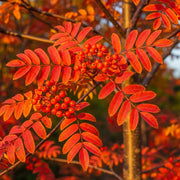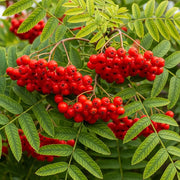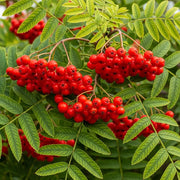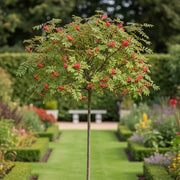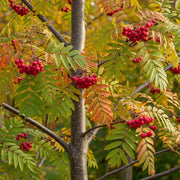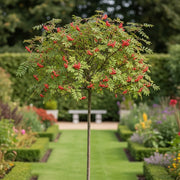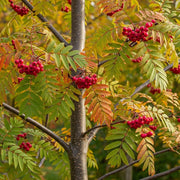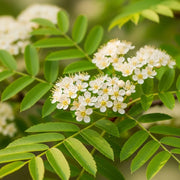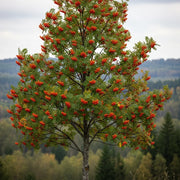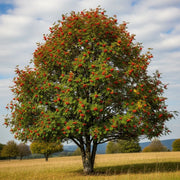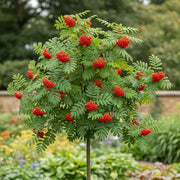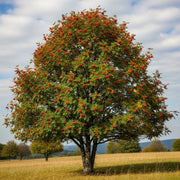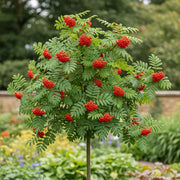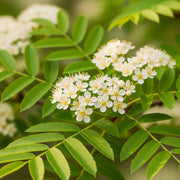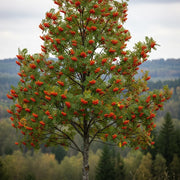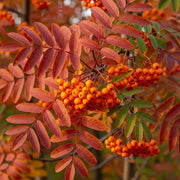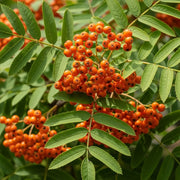Discover our magnificent collection of Sorbus trees, also widely known as Rowan or Mountain Ash. Celebrated for their year-round appeal, these versatile trees offer a stunning display of vibrant autumn foliage, eye-catching berries that provide a feast for local wildlife,...
Discover our magnificent collection of Sorbus trees, also widely known as Rowan or Mountain Ash. Celebrated for their year-round appeal, these versatile trees offer a stunning display of vibrant autumn foliage, eye-catching berries that provide a feast for local wildlife, and often attractive spring blossoms. Hardy and adaptable, a Sorbus tree makes a superb addition to any garden, large or small. Explore our diverse range and find the perfect specimen to enhance your outdoor space.

